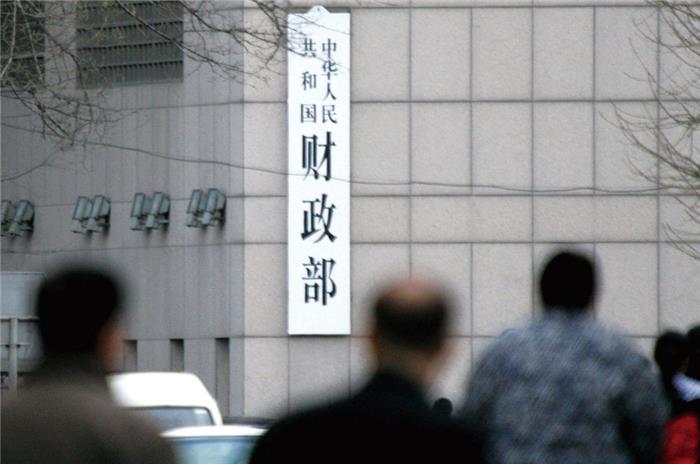
On May 22, the Ministry of Finance announced that, starting from July 1, 2018, the import tariffs on autos and auto parts will be reduced. Tax rates for 135 tax numbers with a full vehicle tax rate of 25% and 4 tax numbers with a tax rate of 20% will be reduced to 15%, and tax rates for auto parts will be 8%, 10%, 15%, 20%, and 25 respectively. The tax rate for a total of 79 tax numbers dropped to 6%. It is understood that this is the tenth adjustment that China has made to the tariffs on imported cars since 1986.
Early tax breaks
In 1986, China merged tariffs and import adjustment taxes, and used automobile displacement as the tariff collection standard. The import tariff rate for models with displacement of less than 3.0L was 180%, and the import tariff rate for vehicles with displacements of 3.0L or more. It was 220%. After several adjustments during the period, until July 1, 2006, the import tariff of the vehicle was reduced to 25% and maintained until today.
In fact, prior to this, the state repeatedly proposed to reduce tariffs but has not been able to do so. Until the end of January this year, when he was the director of the Central Financial Leadership Group Office, Liu He said at the Davos Forum: "China will orderly reduce the import tariffs on automobiles." And during the two sessions in March, Ministry of Commerce Minister Zhong Shan also said: We will lower import tariffs on automobiles and some consumer goods."
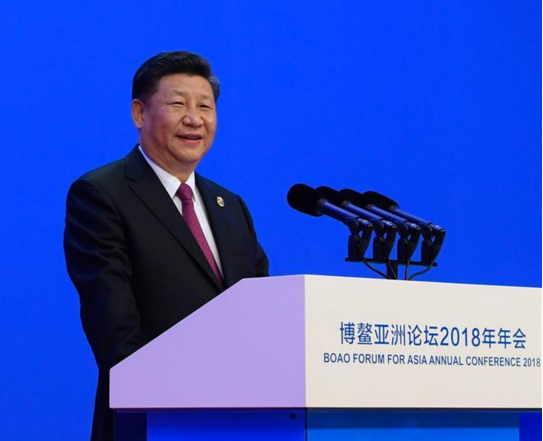
(Source: Xinhuanet)
Subsequently, at the 2018 Boao Forum for Asia on April 10th, the President Xi Jinping made it clear that he would relax the restrictions on foreign investment ratios of auto companies as soon as possible and considerably reduce the tariffs on imported cars. He also said that “we will make it to the ground as soon as possible. It should not be too late, but it should not be slow." As a result, since the automobile stocks were first released on April 17 after the opening program, the highly-reduced auto import tariff adjustment has become one of the most closely watched open-door policies.
"The reduction in import tariffs shows that China is determined to open up to the outside world." Su Hui, chairman of the branch of the tangible market of the China Automobile Dealers Association, said in an interview with the Gasgoo reporter. As the Ministry of Finance pointed out in the article, the reduction of automobile import tariffs is a major measure for China's further expansion of reform and opening up. A considerable reduction in automobile import tariffs will help promote supply-side structural reforms and promote structural adjustment and transformation of the auto industry.
How is the drop in strength? There is still room for downside
Compared with the history of the previous nine tax cuts, the magnitude of this tax cut is not small. In terms of vehicles, the tax rates of 135 tax numbers with a 25% tax rate and 4 tax numbers with a tax rate of 20% will be reduced to 15%, and the tax reduction rates will be 40% and 25% respectively. For auto parts, the tax rates will be The tax rates of 8%, 10%, 15%, 20%, and 25% of the total of 79 tax codes have dropped to 6%, and the average tax reduction rate is 46%. After the tax reduction, the average tax rate for China's auto vehicles is 13.8%, and the average tax rate for parts and components is 6%.
Su Hui said that this time, whether it is the entire vehicle or the tax rate of parts and components will be greatly reduced. Among them, the reduction in the rate of the five tax rates of parts and components to 6% will have a huge impact on parts suppliers, and the impact will be greatly affected. More than the tax reduction brought by the vehicle.
In response, Cao He, the president of All-Union Auto Investment Management (Beijing) Co., Ltd., said that after the tax reduction of the vehicle, there is still a tax rate of 15%, and the tax rate is still high, and there may be downward adjustments in the later period.
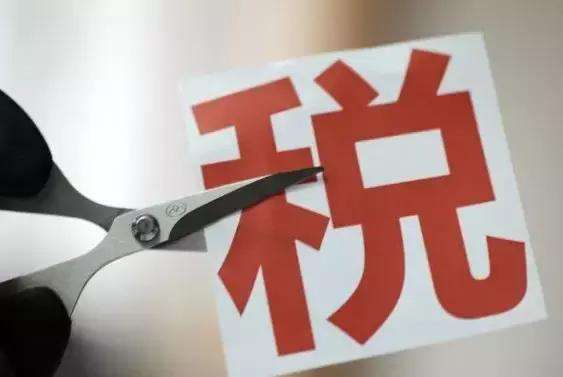
It is understood that compared with the United States, Japan, Europe and other developed countries, China's auto vehicle tariffs should be higher. At present, the EU's vehicle import tariff is 10%, the United States is 5%, and Japan is even lower. In some non-developed countries, the vehicle import tariff is generally higher than China.
If the entire vehicle and parts are added together, the Chinese automobile import tariff level is 13.4% (before the tariff rate was not adjusted this time), and it is at a medium-low level in developing countries.
Who is affected? Luxury car or re-off the official tide falling independent high-end pressure
Shortly before the automobile import tariffs were lowered, the state just lowered the value-added tax rate of the manufacturing industry and other industries from 17% to 16%. This set off a wave of price cuts led by luxury car companies in the automotive industry. At that time, Mercedes-Benz, Jaguar Land Rover, Lincoln, BMW, and Audi all announced the reduction of the official guided retail price of models on the Chinese market, among which, the Mercedes-AMG model had the highest drop of more than 32,000 yuan.
What will be the impact of the reduction of automobile import tariffs on the Chinese auto industry? In this regard, industry experts have pointed to the luxury car brand. According to data released by the China Automobile Dealers Association, China's auto imports totaled 1.216 million vehicles in 2017, an increase of 16.8% year-on-year.
According to an analysis by Cao He, “The reduction of tariff from 25% to 15% will undoubtedly help increase the sales volume of imported luxury cars. However, it is still difficult to say how much it can increase. After all, a tariff of 15% on import tariffs will make the majority The domestically-made luxury car companies have made trade-offs between the introduction of imported models and domestically produced models.†However, it can be predicted that the increase in the sales volume of imported luxury cars will trigger another round of price reductions for luxury cars.
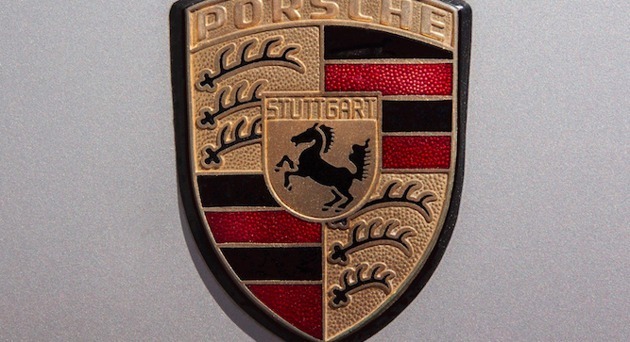
Gasgoo Motor has discovered that since the announcement of the policy, many luxury brands such as Porsche, BMW, Audi and Volvo have spoken and they welcome China's reduction of auto import tariffs. Porsche said that it has begun to evaluate China's auto tariff New Deal and will announce price adjustment measures. BMW said that it will respond positively after conducting price assessments. Audi said that it will adjust the prices of related products simultaneously and the specific information will be announced later; Volvo said: Maximize the benefits to consumers. At present, Volvo is actively conducting an assessment of this policy. Specific information will be announced to the outside world as soon as possible. From the perspective of the response speed of various brands' announcement statements, the future luxury car market will inevitably suffer a lot of hardships.
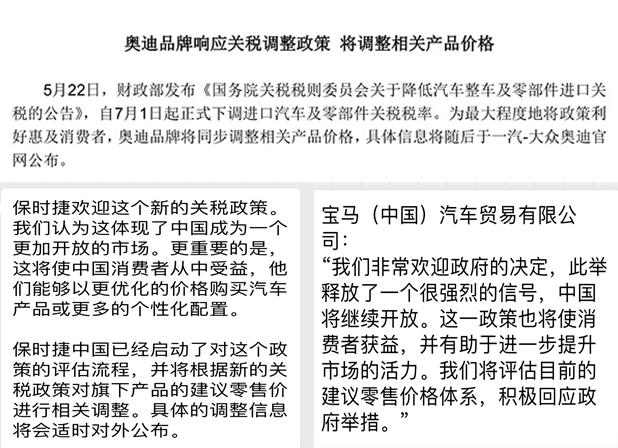
Contrast to the declining price of luxury cars, Cao He frankly expressed even more concern about the development situation of mid-to-high-end brands owned by independent auto makers. “The reduction of import tariffs and the price reduction of luxury cars will have a greater impact on independent high-end brands that have just emerged in the market in the past two years, such as Geely Takeke and Great Wall WEY.â€
Lower car costs? Short-term impact
With the reduction of import tariffs, the industry is generally expected to benefit terminal consumers in the cost of purchasing imported models. CITIC Securities expects that after the tariff reduction, the final price paid by consumers will be reduced by 8% to 15%, and the consumption of imported cars will move from the current scale of 1 million to 1.2 million vehicles to 1.5 million to 2 million vehicles.
At present, an imported automobile must be taxed in three stages: import duties, import duties, and import VAT paid by importers to the customs; in the retail sector, VAT paid by dealers to the State Tax Bureau Do not have to consider); In the section of the card, consumers pay vehicle purchase tax to the IRS.
Taking a imported car with a declaration price of 300,000 yuan and 4.0 displacement as an example, the tariff is reduced to 15%, the total tax is 372,900 yuan, and the vehicle price is down by 8.0%. Relative to the original high prices, lowering tariffs can effectively reduce some of the prices of imported cars. However, it needs to be pointed out that in the short term, the tariff reduction will not be too obvious in the retail market. Guosheng Securities once analyzed that due to the game between dealers and OEMs, it is expected that the prices of imported vehicles will decline moderately, and consumers will ultimately benefit directly. It is still necessary for car companies to make specific adjustments on the new car guidance price.
SGI has been in Deep Hole Drilling for 10 year and has the ability to drill deep and straight holes with a good surface finish, which requires perfect skills. We have worked with metal alloy family in castings, forgings, annealed, heat treated, plated, coated, welded, metal clad, powdered metal and more. Our unique pull bore operation pulls the tool through the workpiece to achieve unmatched straightness in our deep hole drilling. Our lazer verification technology ensures our deep hole drilling are true and straight to meet your specified tolerances.
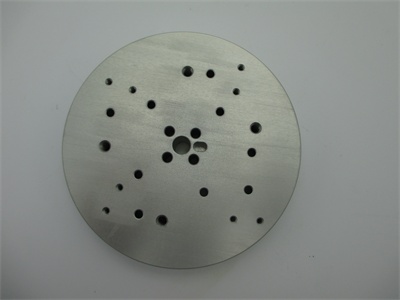
Drilling(Deep Hole)
Deep Hole Drilling,Drilling Spare Parts,Steel Drilling Parts,Drilling Parts Service
SG Industry (China) Co.,Ltd , https://www.sgindustrycn.com
